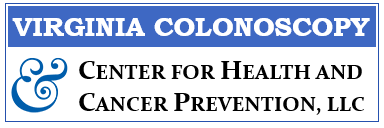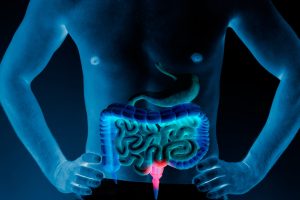Did you know that one in every 23 men and one in every 26 women will be diagnosed with colon cancer at some point in their lives? This stark statistic highlights a reality we cannot afford to ignore. Yet, there’s a powerful tool in our fight against this disease: getting a colonoscopy. It’s not exactly a topic you’d bring up at the dinner table, but perhaps it should be. To help you out, we’ve written a guide that delves deep into the intricacies of this life-saving procedure. We will shed light on its tremendous benefits and demystify the procedure itself. A colonoscopy matters more than you might realize, and our aim is to help you understand why. Keep reading if you want to find out more.
How Does a Colonoscopy Work?
Getting a colonoscopy might seem like a daunting experience. But it’s actually a fairly simple process that plays a vital role in screening for colorectal cancer. Healthcare experts recommend this procedure every ten years for those at average risk. Here’s how it works. Following a thorough bowel cleansing, and after receiving a light sedative, a long, thin, flexible tube equipped with a small camera on its end, known as a colonoscope, is gently inserted into the rectum.
The purpose? To get a clear, up-close view of the inside of the entire colon. As the colonoscope advances, it inflates the colon with air to give the doctor a better view.
The procedure allows the doctor to find and remove small polyps, benign growths that could potentially turn into cancer over time. Colonoscopies are considered the gold standard (i.e., the best and most accurate technology we currently have) in colon cancer screenings. This is because of their ability to both detect and prevent cancer.
If a doctor spots a polyp, they can remove it right then and there during the same procedure. This will prevent it from developing into something more serious. Despite these obvious benefits, about one in five adults who are between 50 and 70 years old still have not chosen to get screenings. This is concerning because colorectal cancer usually starts with no symptoms. This is why early detection via screenings is essential. It’s crucial to remember that getting a colonoscopy isn’t just about finding cancer.
It’s about preventing it. It’s a procedure that has the power to save lives, yet is often overlooked or avoided.
When Should I Get My First Colonoscopy?
Deciding when to get your first colonoscopy is an important step in your health journey. This is why healthcare experts suggest that both men and women at average risk should have their first screening colonoscopy when they are 45. A screening colonoscopy can prevent cancer, not just detect it. During the procedure, doctors can find and remove polyps before they have a chance to turn into cancer. This is one of the reasons why colonoscopies are often referred to as a preventive screening.
But what about if you’re at higher risk? If you have a family history of cancer, your doctor might suggest that you get a colonoscopy when you’re young. Remember, age guidelines can change, and individual risk factors can influence when you should start screening. That’s why it’s so important to have open, honest discussions with your healthcare provider. They can provide the best advice based on your personal health history and risk factors.
Why Did the Recommended Age for Getting a Colonoscopy Decrease for Younger People?
The recommended age for getting a colonoscopy decreased in the United States because colorectal cancer rates have unfortunately been rising in younger adults. Healthcare providers realize that it is possible to change this trend by encouraging people to start getting colonoscopies when they are younger. This proactive approach makes it easier to detect cancer earlier. It also gives them the opportunity to detect and remove precancerous polyps before they can develop into cancer. The goal is to catch potential problems earlier. This will encourage better outcomes and will save more lives from this preventable disease.
What Types of Ailments Are Causes for Concern and May Require a Colonoscopy?
A colonoscopy procedure is commonly known for its role in cancer screening. But many people don’t realize that it can also be useful in diagnosing other ailments related to the colon and rectum. One concern is chronic diarrhea or constipation. If these conditions persist over weeks, it could be a sign of a more serious issue like irritable bowel syndrome, Crohn’s disease, or colorectal cancer.
Another warning sign is rectal bleeding or blood in the stool. This can indicate a range of problems from hemorrhoids to cancer. Unexplained abdominal pain or cramping is another reason to consult a gastroenterologist. These symptoms might indicate a condition such as diverticulosis or potentially colon cancer.
Finally, unexplained weight loss combined with changes in bowel habits can be concerning. If you’re experiencing any of these symptoms, it’s important to see a healthcare provider. They can determine whether a colonoscopy is necessary to find the cause. A colonoscopy isn’t just a screening tool for cancer. It can provide valuable information to diagnose and manage other health conditions as well.
What Are the Different Ways You Can Prepare for a Colonoscopy and What Are the Pros and Cons?
Your primary care doctor or gastroenterologist will provide you with instructions to clean out your colon or rectum. This typically involves a process called bowel prep, which can include a special diet, drinking a large amount of a special cleansing solution, and taking laxatives. The pros of this thorough prep are that it allows your doctor to clearly see any potential issues, such as polyps or signs of cancer. This clear view is vital for an accurate examination. However, the prep can have downsides. It often means a day spent near a bathroom, and you’ll need to stick to a clear liquid diet. You might experience mild discomfort or feel hungry. Despite these challenges, remember, this preparation plays a key role in the colonoscopy’s success.
Common Myths and Misconceptions About Colonoscopies

Several myths and misconceptions can influence our understanding of colonoscopies, and addressing these can help clarify colonoscopy questions. Here is what you need to know.
Myth: Colonoscopies are painful.
In the past, many colonoscopies were done with little or no sedation. Over the past 20 years, light anesthesia utilizing a very safe, raid acting anesthetic is now virtually universal. Consequently, 99% of patients feel NOTHING during their colonoscopy. Occasionally you may experience transient abdominal bloating after the procedure but this is rare and temporary.
Myth: Colonoscopy prep is unbearable
Prep is not usually a pleasant experience. But the healthcare industry has made improvements over the years. The bowel-cleansing solutions are now more tolerable, and the clear liquid diet is only temporary. In additional, there are now several options for prep you to choose from.
Myth: If I don’t have symptoms, I don’t need a colonoscopy
Colorectal cancer usually starts with no warning symptoms. Regular screenings are crucial for early cancer detection, even if you feel fine. Think of it like this analogy. If you wait to change the oil in your car until you hear a noise coming from your engine, you likely are dealing with a way worse issue than if you had taken the time to do a routine change. It’s the ‘ounce of prevention’ that could save you a major health issue or even your life.
Myth: Only older people need colonoscopies
During the last few years, healthcare professionals have started recommending younger people to get colonoscopies. Colon cancer rates are unexpectedly rising between 2 and 3% per year in patients 50 and younger. The new ‘avererage risk’ screening age is 45 at the latest. Getting a colonoscopy earlier will decrease the likelihood of developing colon cancer.
Why do I Need a Colonoscopy?
A colonoscopy is a cancer screening test that can detect small polyps in your colon before they develop into colorectal cancer. The main reason you need a colonoscopy is to find and remove polyps and therefore reduce your risk of colorectal cancer. Even if you’re healthy and don’t have any symptoms, regular colonoscopies can help prevent cancer before it starts. It’s a proactive step to protect your health.
Who Should Avoid Colonoscopies?
Colonoscopies are a powerful tool for cancer detection and prevention. But understand that they may not be suitable for everyone. Those with severe heart or lung disease may be at increased risk during the procedure due to sedation. People with active colitis, diverticulitis, or certain other bowel conditions might also need to avoid colonoscopies.
Also, those who have recently undergone certain types of surgery may need to wait before having a colonoscopy. Always consult your healthcare provider to figure out if a colonoscopy is right for you. And keep in mind that there are alternative tests that might be available. Unfortunately, none of these ‘alternative’ tests are as accurate and sensitive as colonoscopy but may be better that doing nothing.
What to Know About Getting a Colonoscopy
All adults should familiarize themselves with why getting a colonoscopy is so important. By getting regular colonoscopies, it makes it possible for doctors to identify and diagnose colon cancer before it develops or in its early stages. Contrary to what many people believe, this is a painless procedure. You should make sure to start getting regular colonoscopies by the time you are forty-five years old.
Are you ready to get a colonoscopy?
If so, Virginia Colonoscopy can help you. Our doctors have more than fifty years of professional experience with colon cancer screening, and over the past 42 years, we have worked with over 45,000 patients. We focus our practice on having you have the safest and best possible experience with your screening exam. When your colonoscopy is complete, you will have peace of mind and have added years to your life expectancy.
As the American Cancer Society says, “Don’t sit on colon cancer!” Contact us today at Virginiacolonoscopy.com





